|
It has been nearly a year now since I joined Plymouth's staff as your Director of Music and Organist and so have had the chance to experience a full liturgical year with you. It has been a joy I must say and thank you all for being so welcoming to this nearly life long Ohioan! I am not disappointed to be in Colorado, let's just say... My intention is to always open up more possibilities for all of you to participate in Plymouth's music ministry. The music program is, after all, yours! To that end, benefitted by the knowledge and wisdom gained by taking 'one lap' around the liturgical year, I'd like to present a brief overview of our existing music ensembles and introduce a few new opportunities. The Chancel Choir will continue to be open to all who love to sing and who wish to be challenged by a wide spectrum of repertoire. This choir sings primarily at the 11:00 a.m. service and occasional at ancillary services such as Christmas Eve. New this year is the Chamber Choir, which will sing primarily at the 9:00 a.m. service approximately once per month. Depending on the repertoire selected, one or two rehearsals would precede the service attended. I would like to keep the size to 12 - 20 singers with a rotating roster expected. Also new this year is the Plymouth Chorale, an auditioned group focusing on advanced repertoire from the Renaissance to contemporary. I anticipate two or three appearances in our services this year. The Plymouth Ringers, our adult handbell choir, is always open to new players. If you have never played handbells before that is okay! A learning curve is built into each rehearsal. A basic understanding of music notation however is required. Additionally, the Youth Bells are always accepting new members under the able direction of Kathee Houser. I am also always looking for instrumentalists to offer their gifts in the summer services and 9:00 a.m. services during the academic year. If you are interested in contributing, please contact me via email or speak with me during office hours or after a service. As you can see, there are many opportunities for you to participate in our music ministry if you wish. Do please know that there is no need for an all or nothing commitment to any of the preceding ensembles either. Give the time that you have, when you can. I can provide further details on how this can be accomplished. Lastly, a music page will be set up in the near future with much more information including schedules and further detailed descriptions of our ensembles. Stay tuned. Mark Heiskanen Director of Music/Organist AuthorMark Heiskanen has been Plymouth's Director of Music since September 2017. Originally from Northeast Ohio, Mark has experience and great interest in a diverse range of musical styles including jazz, rock, musical theatre, and gospel. He is thrilled to serve a congregation and staff that values diversity and inclusion in all facets of life. 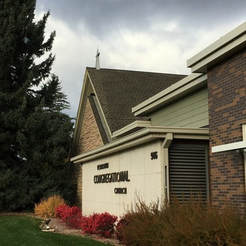 Most of us at Plymouth probably don’t read a whole lot about the decline of mainline Protestantism, a persistent trend that started in the 1960s, but many of us who are active in ordained ministry cannot help but encounter the deluge of such articles. Perhaps the most ominously titled article was a 2017 piece in the Washington Post: “If It Doesn’t Stem Its Decline, Mainline Protestantism Has Just 23 Easters Left.” Of course, that’s a projection based on aggregate national statistics, not the stories of individual congregations. The story at Plymouth is a positive one. So, you would be forgiven any assumption that mainline churches are doing just fine. The story at the UCC churches closest to Plymouth is unfolding differently. There are six UCC churches nearby in our Association. Some are healthier than others, but according to the UCC Yearbook, each has declined by more than 100 members over the past 15 years. (See chart) In fact, Plymouth is the only church that has grown in membership. The prognosis for many smaller congregations in the UCC is not encouraging. Larger congregations, like the one Plymouth is becoming, are more resilient in the face of demographic changes and moments of financial insecurity like the 2007 recession. No one has a crystal ball, but I am not hopeful that more than a handful of the UCC churches in our Association will be here in 20 years. While some members are ambivalent about our congregation growing, I know that all of us want Plymouth to keep making a difference in our community and in the lives of our members, and I’m confident that our future is bright as an outpost of the Kingdom of God. The reasons for mainline decline are complex: fewer young people raised in the faith stay here; our birthrate is unusually low; anti-institutionalism, we get tarred with the same brush when sex-abuse is unearthed and organized religion gets the blame for the 9/11 attacks, and some folks want black-and-white rather than nuanced approaches to biblical interpretation and faith. Research from Hartford Seminary’s FACT survey also indicates that many mainline congregations struggle with a lack of clarity about who they are and also demand little of their adherents. There is something harder to define in healthy congregations: a culture of being ready and able to handle conflict healthily when it arises. (And it arises in every congregation.) A key component of working creatively and effectively with conflict is a culture of open communication. Three hallmarks are identified by Kibbie Ruth and Karen McClintock in their 2007 Alban Institute book, Healthy Disclosure: Solving Communications Quandaries in Congregations: reducing triangulation, reducing pass-through communication, and eliminating anonymous feedback. All of this takes courage and trust…which are hallmarks of our faith and evolved spirituality. (See Eph. 4.15 and Matt. 18-15-17) Triangulation happens when someone wants to make a comment to another person but cannot muster the courage to stand face-to-face and gently, assertively share that information. Instead, they take the seemingly easier path of telling someone a third person…so the person they wanted to communicate with never gets the message! We have a staff axiom: “Speak to, not about,” which eliminates triangulation. Pass-through communication happens when someone refuses to go directly to another person with information -– another member, a staff person, an officer -– and instead asks someone to act as their messenger, so a direct exchange of ideas cannot happen. It also puts the messenger in an unfair bind. Anonymous feedback is an unhealthy pattern of communication in many congregations. It happens when someone wants to give input but is not willing to accept responsibility for their comment. It also deprives the recipient of the ability to follow up and learn more about a critique or to apologize for a misstep. Each of these patterns tears down trust within the congregational system and instills a culture of secrecy and not being responsible for sharing one’s ideas openly. It sets up a congregational system in which dramatically bad things (like cliques, financial malfeasance, and patterns of abuse) can happen without consequences. No one communicates perfectly, and it is a learned set of behaviors. I am confident that we at Plymouth will continue to be a healthy, growing, enduring congregation. If you need assistance with direct communication, our Pastoral Relations Committee can help. You can reach them at PRC@plymouthucc.org AuthorThe Rev. Hal Chorpennng has been Plymouth's senior minister since 2002. Before that, he was associate conference minister with the Connecticut Conference of the UCC. A grant from the Lilly Endowment enabled him to study Celtic Christianity in the UK and Ireland. Prior to ordained ministry, Hal had a business in corporate communications. Read more about Hal. 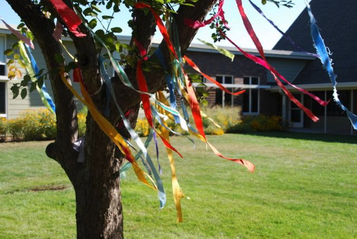 Dear Plymouth, Three weeks ago it was my privilege to preach on the story from Mark 5 of Jesus healing the woman with the flow of blood and Jairus’ daughter. It is a long-loved, deeply felt Biblical text for me. I have told the Luke 8 version of this story (which is virtually identical to the Mark passage) for over twenty five years in worship and workshops. It was the first biblical story I internalized and committed to memory when I began studying the art of Biblical storytelling with the Network of Biblical Storytellers. It’s images of desperate pleas for healing, of risky acts, of skeptical disciples and neighbors, of pressing crowds, of Jesus’ compassion and vulnerable women have been working on me for many years. If you were with us in worship and heard the sermon at 10 a.m., or dialogued with me about the text at 6 p.m., you know that the image from the story that was driving my preaching that day was the image of telling the whole truth, telling the whole story of grief. The images of the hidden woman who came forward to tell the whole truth and the distinguished leader of the synagogue who bravely spills his whole truth at the feet of Jesus in front of a crowd are powerful. Telling their stories initiated and catalyzed healing, of self, of a loved one, of the community. Healing happens when we tell our stories. And if you were there you know that I briefly (and tearfully in the morning) shared part of my grief story and the healing journey I am on after the death of my son, Colin. (If you would like to read the sermon on our Plymouth website, click here.) Thank you for the graceful, heartfelt reception of my vulnerability that day! You all stood by me as faithful companions on the journey and I was very moved by that. You are my faith community and while I will not wear my grief on my sleeve, lest it hinder my ability to be with you as one of your ministers, I also want to and need to be vulnerable with you where it is appropriate. Its important for the healing of us all. So I urge us all to be more vulnerable in telling our faith stories of grief, of joy, of struggle with one another in safe and appropriate situations. And I want to make it clear that telling your story does not mean standing in front of a crowd! Crowds are not necessary. Tell your story to one trusted person. (Hal and Jake and I are available for story listening! We also have trained calling and caring visitors who are good listeners!) Tell your story in a small group, in a Christian formation class, at a fellowship event with a few trusted folks. Listen to your heart as well as your head and you will know when it is appropriate, when it is safe. Do not force yourself to share if you do not feel safe! With some stories confidentiality is very important. Share brief parts first and see how it goes for you if the thought of being vulnerable with your story is frightening. When you need to share more the opportunity will arise. It’s a learning process. God will lead you. And don’t be afraid to cry. In telling the story or in simply sitting with it in worship, tears can come. Heidi Haverkamp, author and Episcopal priest, writes of an experience when she was allowed to sit in the pew rather than lead worship during a time of crisis and cry. “What else is church for, if you can’t sit there and cry?...At Christmas we call Jesus Emmanuel, or “God with us.” To sit in my pew, tears and all, was a chance to bring my whole self and whole life into church with me and to feel part of the “us of “God with us,” instead of just crying alone at my house. I wonder if this could be a blessing for others, too, at the holidays or on any Sunday of the year, to sit and cry in church when we need to , to be God’s people all together, with all the joys and sorrow, smiles and tears, of human life, before the one who love us so much.” (Click here to read Heidi’s entire article in Christian Century, “Church is the perfect place to cry.”) What else is church for if it is not a community where we can safely be vulnerable? Where we can tell our stories to one another. Where we can shed tears of joy and sorrow. Let’s be church together. Blessings on the journey, Jane Anne AuthorThe Rev. Jane Anne Ferguson, Associate, Minister, is a writer, storyteller, and contributor to Feasting on the Word, a popular biblical commentary. She is also the writer of sermon-stories.com, a lectionary-based story-commentary series. Learn more about Jane Ann here. We the people... We the humans. We humanity. We the child. We the parents. We the strong. We the advocate. You. Me. Them. WE! We who are mortal, temporary, transient on this fragile planet: We, God, hold these truths to be self-evident [but maybe not as self-evident to everyone as we had assumed...all these 242 years] that all people are created equal, enabled, beloved, touched by a hint of the divine spark, maintained by a universal grace in equality of person, status, and importance. We are intrinsically and deeply endowed, God, by you, Almighty Love that Drives the Stars and Forms Planets, with certain unalienable, irrevocable, cannot be questioned prerogatives! Rights. Respect. Dignity. Freedoms! God, you give us Life. May it not be taken away by someone with a gun. May it not be taken away by incarceration or confinement. May none revoke what you have given by birth. God, you give us Liberty. May we learn to work for the freedom and liberation of all. May none live in fear of unjust imprisonment. May none fear for the liberty of their children or children's children. God, you give us the peace and hope to pursue happiness. May you protect the happiness of LGBTQ people and the legal safety of our marriages. May you preserve the happiness of those who are immigrants hoping for a better future. May you protect the pursuit of happiness in the fundamentals of community togetherness. Help us, O Love, help us to remember how to pursue happiness as a country. Happiness not dominance. Happiness not pain pills. Happiness not guns. Happiness not power over others. Happiness not war. God who endowed us with every hope, every strength, and capacity to love, renew in us a declaration of independence from the narratives of pain, trends of oppression, purveyors of scarcity, salespeople of fear that seek to do harm to your Realm of Everlasting peace in heaven as it is on earth. We pray for independence from daily fear and ask for your strength to give us words of love and courage for this time. We thank you for this beautiful country filled with kind and diverse people. We do love our neighbors, generally, and try to treat them well. We thank you for a Constitution that protects our freedoms and our optimism for the future and which separates powers. We the people, God, give you thanks and ask for your protection, your wisdom, and your love for all people created equal in liberty, life, and all seeking and encountering happiness. We the people have hope still. Amen. AuthorThe Rev. Jake Miles Joseph ("just Jake"), Associate Minister, came to Plymouth in 2014 having served in the national setting of the UCC on the board of Justice & Witness Ministries, the Coalition for LGBT Concerns, and the Chairperson of the Council for Youth and Young Adult Ministries (CYYAM). Jake has a passion for ecumenical work and has worked in a wide variety of churches and traditions. Read more about him on our staff page. |
Details
|
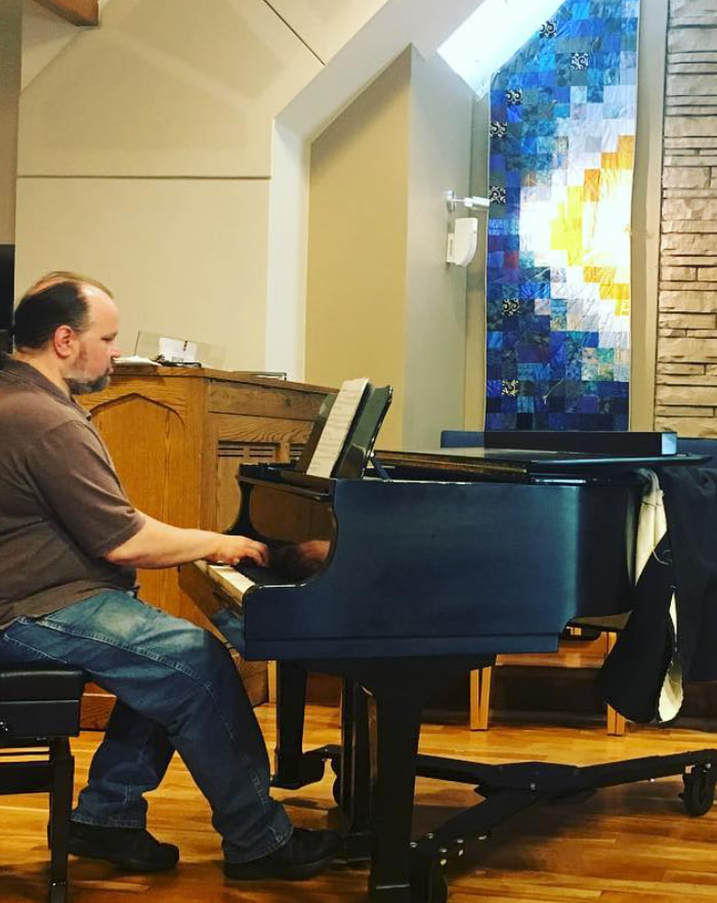
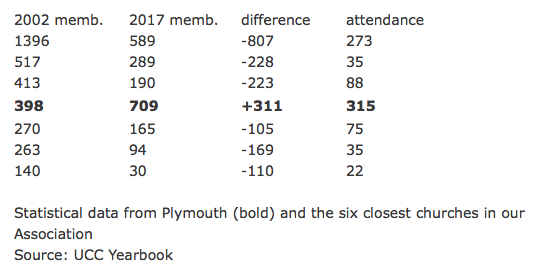
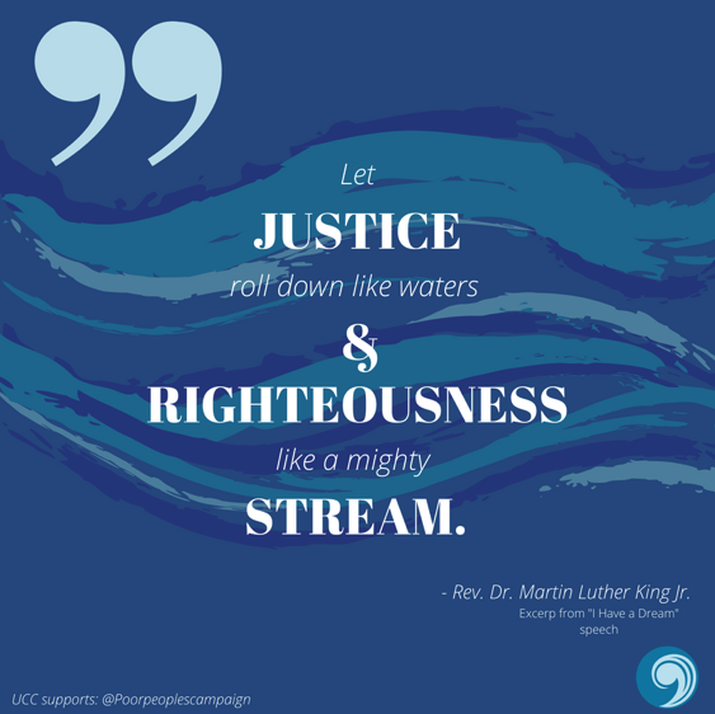
 RSS Feed
RSS Feed